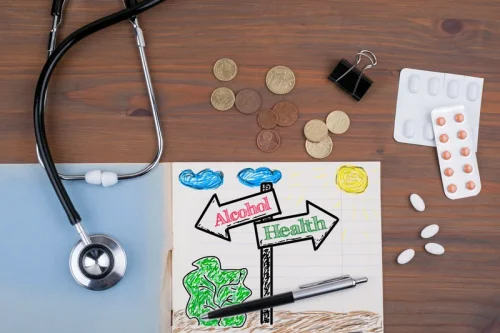
Over time, chronic alcohol consumption can lead to irreversible damage to the heart and blood vessels, increasing the risk of conditions such as coronary artery disease, bp alcohol heart failure, and stroke. The cumulative impact of alcohol on the cardiovascular system underscores the importance of early intervention and making lifestyle changes to prevent further damage. One of the most frequently asked questions is whether there is a safe amount of alcohol that can be consumed without harming cardiovascular health. While some studies suggest that moderate alcohol consumption might offer cardiovascular benefits, these benefits are not guaranteed and can vary based on individual health factors. Additionally, what is considered “moderate” can differ from person to person, and for some individuals, even small amounts of alcohol can be harmful. The relationship between alcohol consumption and heart health is complex, and it’s important to weigh the potential benefits against the well-documented risks of excessive drinking.
The Impact of Moderate Alcohol Consumption

Predictably, the alcoholic beverage industry opposes more restrictive guidelines. In the long term, regular binge drinking can also increase your risk of becoming dependent on alcohol, alcohol-related cancer and heart disease. Other researchers have used genetic approaches (i.e., transgenic animals) to prevent ethanol-induced oxidative stress. One approach included overexpression of proteins such as insulin-like growth factor (IGF-1), which stimulates growth and cell proliferation and has antiapoptotic effects (see Zhang et al. 2014). In contrast to control mice, the IGF-1–expressing animals exhibited no evidence of changes in expression of antioxidant enzymes (i.e., superoxide dismutase-1) or any decreases in contractile function after 16 weeks of ethanol consumption.
‘I’m a Cardiologist, and Here’s How Alcohol Impacts Your Heart Rate’

Over time, this added strain can lead to hypertension, or chronically high blood pressure, a condition that significantly increases your risk of heart disease, stroke, and other health problems. When it comes to drinking alcohol, health institutions recommend moderation. As a reference, the National Institutes of Health defines moderate drinking as up to one drink a day for women and up to two for men. Even if you only drink on special occasions or weekend outings, you may find it helpful to explore life without alcohol entirely. In doing so, you may discover how much healthier you feel, how your relationships strengthen and the unexpected ways your overall quality of life improves. But, whether you set weekly limits or put down the glass completely, it’s about finding what aligns with your personal goals and health needs.
Support HRI
- The more alcohol you consume, the greater the strain on your cardiovascular system.
- Alcohol affects the cardiovascular system by influencing heart rate, blood pressure, and the function of the heart muscle.
- Too many episodes of tachycardia can contribute to heart attack or stroke.
- Also, make sure to avoid overexerting yourself while drinking,” she adds.
- This is especially true in light of the relationship between a sensor of stress (mTOR) and nutrient deprivation and how essential autophagy is to cell survival.
- This review aimed to quantify the acute effects of different doses of alcohol over time on blood pressure and heart rate in an adult population.
If you’re not sure, make a note to tune into how much you’re having over the course of the next month or so. If it’s more than recommended, try to consciously pace your drinking to help reduce the spike in your blood pressure that excessive alcohol causes. One well-known problem of observational studies is that they can’t prove cause and effect. Light to moderate drinkers tend to be educated and relatively wealthy, which often enables healthy habits and good medical care. Also, people who are ill or taking certain medications are often advised to avoid alcohol. If you compare these abstainers to drinkers, the drinkers appear healthier by comparison, but that’s not necessarily due to the alcohol.

A 2022 study showed a link between moderate drinking (eight to 16 drinks per week) and a lower risk of type 2 diabetes, but specifically among people who drank alcohol with meals. Many short-term trials that randomly assign people to drink either alcohol or a nonalcoholic beverage show lower blood sugar levels and better insulin sensitivity among people who drink moderate amounts of alcohol. While these biomarkers aren’t a perfect representation of diabetes risk, they’re pretty close, says Dr. Mukamal. People with diabetes are twice as likely to have heart disease as people without the condition.
However, in a recently conducted Mendelian randomization study, Vu and colleagues (2016) reported that low-to-moderate alcohol consumption reduced triglyceride and LDL-c and increased HDL-c, in particular alcoholism the HDL2-c subfraction. Interestingly, the researchers found a nonlinear effect of alcohol consumption on HDL2-c levels. This supports the findings from other studies that the alcohol-induced changes in HDL-c do not fully account for the lower risk of CHD in moderate alcohol drinkers (Mukamal 2012). The long-term effects of alcohol on the cardiovascular system can be severe, especially in individuals who engage in regular and excessive drinking.
- Greenfield and colleagues (2005) studied the effects of alcohol at meal time in a group of nonsmoking, healthy postmenopausal women.
- She outlines that it’s about digging into whether those triggers are emotional, tied to your environment, linked to certain exposures or even connected to certain times of the day or year.
- Talk to your healthcare provider about how alcohol might interact with your prescription medicines.
- As Ye et al. have stated, this may be due to sodium intake, which is consumed at the same time as alcohol consumption.
- And the alcoholic beverage industry is a major economic force, responsible for more than $250 billion in sales annually in the US.
- If you’re worried about your or a loved one’s drinking habits, screening questionnaires like CAGE or AUDIT can help clarify the severity of alcohol use patterns and link them to possible health consequences.
- Her nutrition philosophy is to dig deeper and identify the root causes of people’s health concerns using a holistic, integrative and functional approach.
- The DASH (Dietary Approaches to Stop Hypertension) diet, in particular, has been shown to be highly effective in lowering blood pressure.
- A Brief Overview of AlcoholEthyl alcohol (ethanol) is the psychoactive ingredient in beverages like beer, wine, and spirits.
We wanted to quantify the effects of a single dose of alcohol on blood pressure and heart rate within 24 hours of consumption. Drinking too much alcohol can raise the levels of some fats in the blood (triglycerides), reduce our HDL “good” cholesterol and increase our blood pressure. As alcohol is very energy dense, we’re likely to increase our caloric intake. Doing this continuously may lead to weight gain, which is well known to increase blood pressure and heighten our risk of developing type two diabetes and cardiovascular disease. A top-notch smartwatch is well-suited to track a range of activity levels and vitals, displaying data on everything from your step count and sleep stats to your heart rate.
Your Daily Horoscope for March 4, 2025
Differential associations of CV risk with certain beverage types such as wine instead have been attributable to other lifestyle factors (e.g., increased physical activity) or drinking with meals (Malarcher et al. 2001). Thus, low levels of alcohol consumption (1 to 2 drinks, but not every day) in patients with heart failure may not exacerbate the condition, especially in those with heart failure attributable to ischemic CHD. Because heart failure patients usually are older (over age 65) and often are prescribed numerous medications, both the effects of age and of medication use should be carefully considered by patients, clinicians, and researchers. Vascular wall oxidative stress also is a key mechanism in ethanol-induced HTN. Oxidative stress is an imbalance between production of free radicals and the body’s ability to detoxify or fight off their harmful effects through neutralization by antioxidants. Various studies with animals and humans indicate that ethanol can increase the development of reactive oxygen species (ROS), leading to increases in redox-signaling pathways and decreases in protective antioxidant levels.
In the moment, alcohol can help people feel relaxed, and that’s especially true when people drink in social situations. It’s possible that light to moderate drinkers have stronger social ties, which in turn provide resilience against stress. The study authors are now focusing on other interventions — such as meditation or exercise — that might lower the brain’s stress activity without the potentially harmful effects of alcohol.
